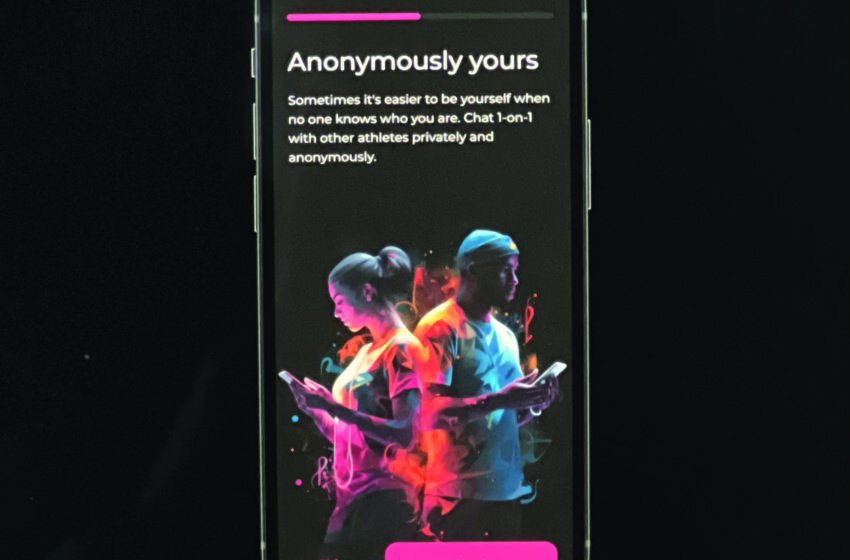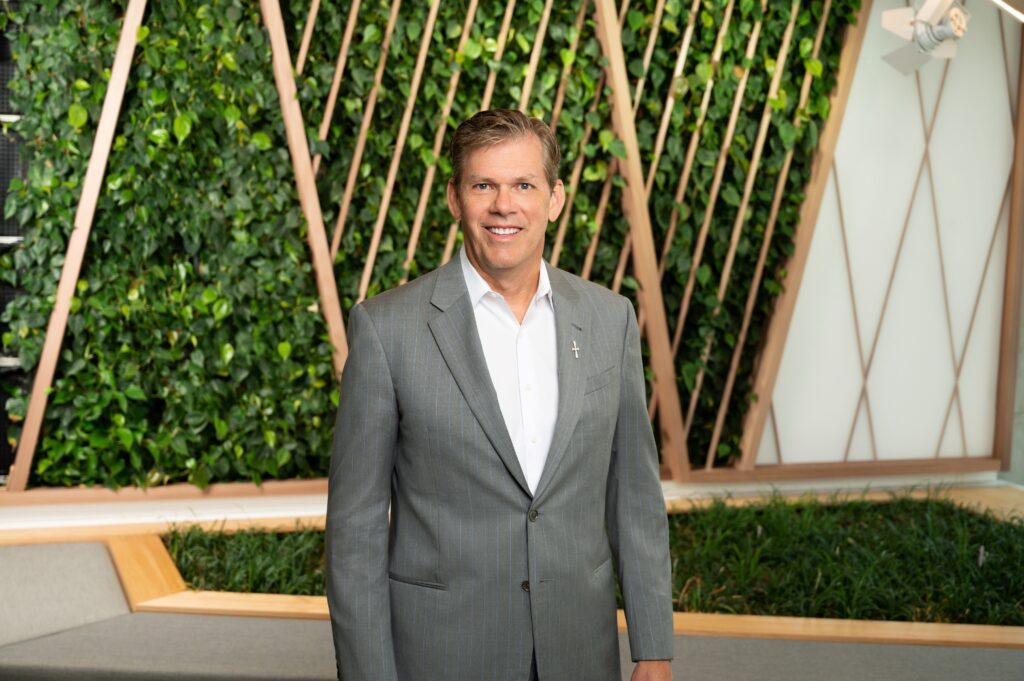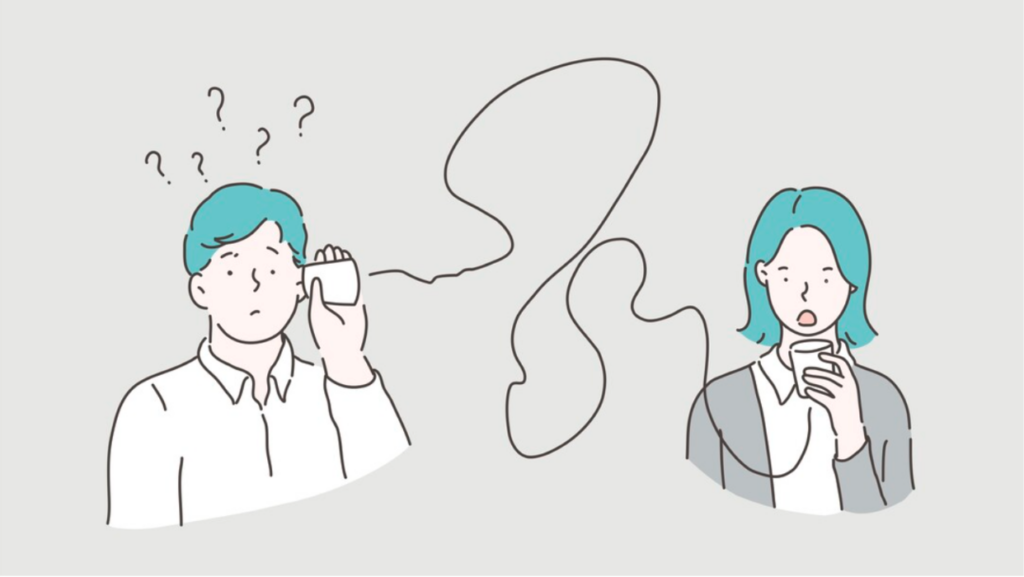Succeeding With A Second Wind
- November 28, 2023

Reviving a Business with a Mental Health App: The NUI Story
Julie Korioth is in the thick of getting her idea off the ground. She admits it’s been a bit tumultuous. There have been product and services evolutions, slowed growth, and runway issues, but after a major pivot this year, her company has found its second wind.
Now called NUI, Korioth’s company launched in 2021 as Speak as One, a company that initially offered a range of mental health tools including a monthly subscription box, YouTube content, and monthly events to support the mental health of veterans, first responders, and athletes, among other demographics. By 2022, however, the trajectory of Speak as One had begun to founder, and investment interest started to wane. But in 2023, Korioth renamed the company as NUI and pivoted to develop a mental health app focused on student athletes. The change breathed new life into the company and renewed investor interest, refueling NUI with fresh capital.
As Korioth struggled in her business journey, when it looked as if Speak as One might not go, the market sectors she sought to serve were changing. Behavioral and mental health issues became more problematic: In 2021, the national suicide rate rose by 4.79 percent after a two-year decline, according to Centers for Disease Control data released earlier this year. Then in 2022, the suicides of three college student athletes within a two-month span made headlines. Five college student athletes took their own lives in all of last year.
Korioth is no stranger to mental health issues. Her mission to help address them started when she was young.
“I’ve always cared about mental health and always struggled with it,” Korioth says. “I didn’t know what anxiety was in kindergarten, but now as an adult looking back, I know that’s what it was. I was very depressed during high school, too. We just didn’t know a lot about mental health back then.”
Korioth’s trials eventually led her to earn a master’s degree in counseling, but she drew upon those early experiences and more recent life events to brave the field of entrepreneurship.
Why did you transition Speak as One to NUI?
I never had a desire to be an influencer or a YouTuber. I never put emphasis on growing the YouTube channel, because I just thought, “Well, if we can help one person, then we’re doing our job. And if it grows, it grows.” But I wasn’t going to put a bunch of money into it.
I was hoping that with the [monthly subscription] boxes, we could incorporate a QR code for the [online] stories and that it would grow and be this beautiful thing people could use. I raised some money last year, but then in the fall, whenever the economy shifted, I wasn’t able to raise any more money. Potential investors liked the idea, but they couldn’t wrap their brains around investing in it, and I ran out of runway. I knew that I was not ever going to let this go. There are people who really need help in the world, and I believe in this, with all my heart and soul, that if it wasn’t the boxes, then there was something else.
At the same time, my son—who was 12 years old at the time—became obsessed with basketball. I started to see that, already at such a very young age, these young athletes in these select sports are dealing with so much. Basically, if you’re not in the select sport that you want to be in by the time you’re 6 years old, [when you’re older] you won’t be on the A-team. And if you do get there, you’re going to have to claw your way up, and it’s a long journey. It was a long road with my son.
By 2022—considered the deadliest year among college athletes due to death by suicide—Speak as One had already started working in the sports area. I couldn’t get the B2C part of this business going, so I pivoted to B2B.
I was already starting to do some research on college athletes and along with my son, it all started to make sense that we needed to focus on college athletes. My idea was that we needed to start supporting this area and create a trickle-down effect where college athletes—when they start sharing their stories—will help the younger generation, who will also eventually start using it.
I still had the boxes, and the only thing I added to my pitch deck was that there might be an app to go with the boxes and that we were going to focus on college athletes. I went to start pitching this to previous investors and other people I’d pitched to, and they were more interested in the app than the boxes. I also didn’t want to be a part of the problem when it comes to global warming and add things that weren’t being used to landfills. It was a lot to think about and process, but the more intently I would look at my son and his friends and see what they do right after a game—it’s the phone.
So, I completely changed everything because to effect change in the younger generation’s perception of mental health and the world’s understanding of it, we must engage with them on their terms, which means connecting through their phones and apps.
Why the name change? What does “nui” mean?
It chose me. I wasn’t even looking for it. It popped up in an article I was reading. The word nui means “big” or “huge” in Hawaiian. So, we’re doing big and huge things to change the conversation around mental health, to help support people with mental health, and then create an app that can really dive into the same mission as well as what we were thinking about with Speak as One, except in an app.
You mentioned that you ran out of runway. When that happened, what kind of processes did you think about to regroup and keep going?
For me, there was never a plan B. There’s just not. I know some people may think that’s not responsible, but I just knew that it meant something had to change. It was my own personal journey.
When I was in my darkest days, it was so challenging to find help and completely change my life, but I never thought: “I’m going to stay here in the thick of it and live this existence that feels very miserable.” I had to stop drinking, find help, and more to get my life on track. It wasn’t easy, but it was worth it. And I’m proud because how do you get yourself up, get going, and make changes when the answers aren’t always spelled out?
When I ran out of runway, I had the same mentality. There were many sleepless nights, and there were some of the most stressful days I can remember. It was more, “Okay, what are we going to do to get ourselves out of this? What are we going to change? How are we going to evolve? What’s going to make sense?”
It really was so interesting how every door started opening when I mentioned: “What do you think about college athletes, and maybe our focus is this?” I started hearing “yes” more often, having people make introductions and suggest other ways to advance my mission. It just felt like it evolved so very naturally.
What mentors or role models were important in the creation of NUI? What did you learn from them?
I have so many amazing mentors and advisers. The company would not be here without them. However, the very first mentor I ever met was Will Hurley. “Whurley” is what he goes by. It was funny in the beginning, because he is very much about tech, all tech, and has a quantum computing company called Strangeworks. Everybody’s like, “He’s your mentor?” But he cares very much about mental health. When I met him two years ago, he shared that some of his former employees had taken their lives and he really wanted to see change when it came to how organizations handle mental health.
He was the perfect mentor for my situation. I’ve always felt insecure, but especially with being a founder and entrepreneur. I would admit to Whurley that I felt like I didn’t know what I was doing, to which he replied, “Neither does anyone else. Keep going. Do a little bit every day. No one knows what they’re doing.”
[Whurley] kept assuring me and sending me books where entrepreneurs were reiterating my own feelings, saying things like, “I had my MBA. I still was not prepared for this at all.” It was helpful to have: 1) somebody who believes in you and what you’re doing, and 2) for him just to give that simple piece of advice that helped me, which was to just work on this every day—because when you start working on something, it grows. So, it is just getting started every day, even when you’re feeling insecure.
How would you define your personal leadership style?
I’ve gone back and forth with this one, because when I pitch I have wondered, “Do I need to change who I am or, do I need to change my personality to this visual that I have of women leaders who are more like powerhouses or something?” But the more I’ve grown into my leadership style, the more confident I am in it. That style is to be me, a person who cares deeply about the people around me while always growing as an individual. I feel like when we take care of our mental health, we take care of our physical health at the same time. That’s how I’m leading—and leading by example.
When it comes to leading a team, I want to make sure that’s at the forefront, that we have open communication where people feel like they can come to me and I’m going to be there for them. As a leader, I think it’s just being a good, authentic person, who believes the best in people, even when we see otherwise—to lead with love instead of fear, and to make sure we love, not judge, because that is what this company’s about. Not perfection but practicing daily with an open mind and heart-centered perception of those around us.
What are your hopes for the long-term future of NUI?
My hope for the company is that NUI for athletes is only the beginning. I hope we eventually have NUI acting, NUI music, and so on. My daughter loves stage acting, and just like sports, it has its own set of challenges. We eventually want to be part of young adults’ lives in whatever area they are passionate about.
This is more than getting individuals to buy in to what we’re doing. I want the schools to be involved. I want NIL companies to be involved. I want organizations such as ESPN and Fox News in the mix. The reason I feel like that’s so vitally important is not just for numbers; it’s because whenever we get these people involved on a bigger scale and then they’re saying, “Hey, we want to take care of you individually as athletes,” then they’re all doing it together. It’ll be more of an accepted platform to use the app, to work on it. It gives them a conversation platform, too, as well as a place to be themselves and to have some privacy.
NUI—How the App Will Work
NUI is developing a mental health app aimed at reaching student athletes where and when they need support the most. Developers are currently fine-tuning the prototype and readying for launch in February or March 2024.
The first aspect of the NUI app will be a collection of videos. Professional athletes, coaches, and other professionals in specific fields create short videos on topics where they can provide value in regard to mental health. For example, they either give a behind-the-scenes look at how they take care of their brain health or provide tutorials on NIL (name, image, and likeness) money management, how to approach working with NIL companies in addition to taking classes, or how to adjust from being a “big man on campus in high school” to a fourth-string quarterback. These are just some examples of video content, but they exemplify the types of questions and issues college athletes deal with where the professionals’ experiences can help college athletes or younger athletes, Korioth says.
The videos will form an on-demand library of experiences to tap.
The second aspect of the app will be an anonymous peer-to-peer support section, where athletes in the same sports, same age ranges, same experience levels can discuss common issues and challenges. Within this function, discussions are identified by degree of intensity so that athletes needing immediate help can be connected to 988 Suicide and Crisis Lifeline. The eventual goal is to have a professional peer crisis team available for app users.
The third aspect is the coachesque NUI AI chatbot. The chatbot is not a substitute for therapy; it is simply meant to be a space where athletes feel seen and heard and will be pointed to helpful resources in addition to working with a trained professional therapist. If an athlete had a bad practice, for example, there is a space to find some simple tools—whether it’s to go outside for a walk, write down their frustrations via journaling, or maybe just jump in a quick, cold shower—to help them work through the emotions.
With these tools, athletes can develop a routine that works for them to help cope with pressures and issues that come up. The routine area is an area in the app where they can create a “mental health playbook’” they can use not only for sports but for everyday life.
Korioth’s guiding thought throughout development of the app was, “What am I trying to create for my own kids, and what could have prevented me from having to go through what I went through?
“When you don’t have daily coping skills,” she says, “you create ones that don’t serve you. If I would have learned to create different skills when I was younger and utilize those every day as I’m getting older … when you do come across something, whether it’s a divorce, death, or something else—because you will, it’s life—you’ll have those certain tools that protect you and keep you safe in a way that’ll really serve you.”
Other features, such as a practice and game tracker, will also be available. Find out more about the app and other NUI services at GetNUI.com.
That’s my hope, that we start utilizing this as a whole—think about athletes and this next generation as the unique individuals they are. And I want them to know we care and that we are healthier together.
LIGHTENING ROUND
Who is your most-admired Texas CEO?
Lorin Peters [Cookie Rich, based in Austin]. Her journey as an entrepreneur, navigating career pivots, is truly inspiring.
What is the best advice you ever got?
Surround yourself with people who care about you and can elevate the business.
What would surprise people about you?
I try not to have caffeine past 3, but I usually fail.
When are you most productive?
Any time before 3 p.m.
How do you start your day?
Coffee, spiritual/meditative walks, getting
kids up, making lunches, and shipping them off to school.
What keeps you up at night?
My kiddos and work.
What defines success for you?
Being kind and leading with love. Things would look different if the world could live by being kind and loving.






